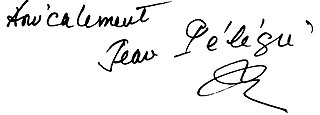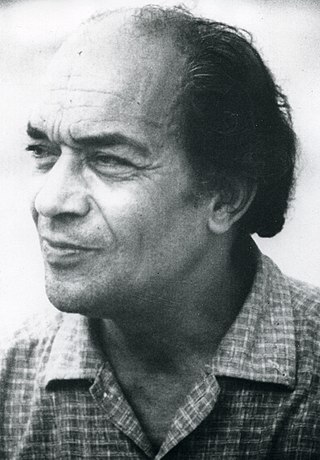Articles related to Algeria include:

Lakhdar Brahimi is an Algerian United Nations diplomat who served as the United Nations and Arab League Special Envoy to Syria until 14 May 2014. He was Minister of Foreign Affairs of Algeria from 1991 to 1993. He served as chairman of the United Nations Panel on United Nations Peace Operations in 2000. Its highly influential report "Report of the Panel on United Nations Peacekeeping" is known as "The Brahimi Report".

Kateb Yacine was an Algerian writer notable for his novels and plays, both in French and Algerian Arabic, and his advocacy of the Berber cause.

The Kabyle people are a Berber ethnic group indigenous to Kabylia in the north of Algeria, spread across the Atlas Mountains, 160 kilometres (100 mi) east of Algiers. They represent the largest Berber population of Algeria and the second largest in North Africa.
Gnawa Diffusion is an Algerian Gnawa music band based in Grenoble, France. The group's lead singer, Amazigh, is the son of the Algerian writer and poet Kateb Yacine. Although there is a strong Gnawa influence, the band is noted for its mix of reggae and roots music. Gnawa Diffusion is very popular in Algeria and is also well known in many other countries including Morocco, Tunisia and France. The band's lyrics are in Algerian Arabic, Tamazight, French and English. Gnawa Diffusion started their career in 1993 with the release of the album Légitime différence.

Mohammed Lakhdar-Hamina is an Algerian film director and screenwriter. He is best known for his 1975 film Chronicle of the Years of Fire, which won the Palme d'Or at the 1975 Cannes Film Festival and became the first Arab and African film to win the award. He is one of the most prominent figures in contemporary Arabic cinema.

Chabab Riadhi Belouizdad ; known as CR Belouizdad or simply CRB for short, is an Algerian association football club based in Algiers, Algeria, that plays in the Ligue Professionnelle 1, the top flight of Algerian football. The club has competed in the top division for a record 55 seasons.

Jean Pélégri was a writer and professor of literature. Of French descent, he was born in Algeria, but left as part of the diaspora of French colonists referred to as pieds-noirs following the Algerian War.
Football in Algeria (soccer) is the country's most popular sport. The country's top domestic league is organised into two national divisions, the Algerian Ligue Professionnelle 1 and the Algerian Ligue Professionnelle 2, overseen by the Algerian Football Federation.

Algerian literature has been influenced by many cultures, including the ancient Romans, Arabs, French, Spanish, and Berbers. The dominant languages in Algerian literature are French and Arabic.
Hadj Smaine Mohamed Seghir was an Algerian actor, director and thespian who was born in 1932 in Constantine, Algeria, France.

Mohammed Khadda was an Algerian painter, sculptor, and writer. Khadda has been considered to be among the founders of contemporary Algerian painting and one of the many representatives of the "sign painters.", as indicated by his nickname "peintre du signe" given by Jean Sénac. He debuted in 1960. His influences included Cubism and Arabic calligraphy. He tended toward the non-figurative or abstract. He represented a generation of Algerian artists who combined the ideas of calligraphic heritage and formal language of Western formal writing through Western abstraction through the 1950s.
Hassan El-Hassani, known by the stage name Hassan El-Hassani, was an Algerian comedian.

Yamina Méchakra was an Algerian novelist and psychiatrist.
Malika Belbey is an Algerian actress.
Algérianité was the conception of a unique "Algerianess" under French colonial rule in Algeria that encompassed an independence from the French identity, and the political ideal of an Algerian homeland. Algérianité conceives of Algerian identity as a unique blend of disparate influences contributed by settlers of differing cultural backgrounds. The blending of such diverse influences creates the new culture that is uniquely Algerian and this is called "Algérianité".
Hamida Ayachi is an Algerian writer, journalist, translator and playwright, He has several novels, theatrical works and political writings. He worked as an editor-in-chief for newspapers that were closed by the authorities, such as Al-Massar Maghreb and Algeria News. Today, he works as an advisor to the Algerian Minister of Culture.
Mohamed Nadir Sebaa, is an Algerian novelist and poet, born on 28 November 1956 Batna. He writes novels and poetry in French language. The novelist is known for focusing his work on dissecting the reality of his society over different periods of time, and by mentioning the names of places and people as they are pronounced locally, without translation or modification.









